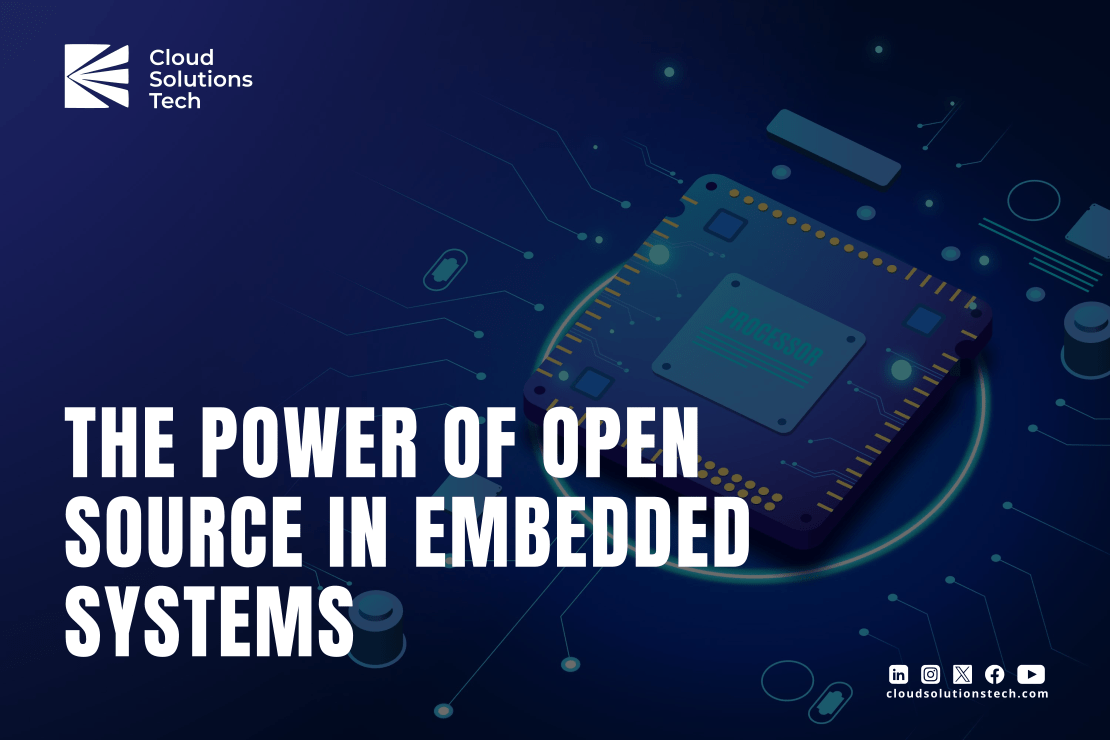The Power of Open Source in Embedded Systems
There’s a trend towards shrinking technology, and it’s not without reason. Linux, known for its versatility and open-source nature, is making its mark in the world of tiny devices.; from smartphones fitting in your pocket to smartwatches monitoring your every step, miniaturization is rapidly changing how we interact with the world, bringing with it a plethora of benefits.
So, About Embedded Systems…
When you need an embedded operating system, Linux is a good place to start. Here’s why:
Today, the demand for intelligent dedicated systems and appliances, utilized in interface, monitoring, communications, and control applications, has reached new heights, necessitating the utilization of cutting-edge operating systems. Gone are the days of relying on antiquated “stand-alone” code or outdated kernels—modern systems require advanced capabilities such as high-resolution graphical user interfaces (GUIs), TCP/IP connectivity, integration of reliable solid-state disk memory, support for ultra-high-speed CPUs, and compatibility with large memory arrays and expansive storage devices like CD-ROMs and hard disks.
Moreover, with the rapid pace of hardware and chipset innovation, coupled with the swift obsolescence of older devices, commercial real-time operating system (RTOS) vendors face an uphill battle in keeping up with the ever-changing hardware landscape. Supporting the latest devices in a timely manner demands a substantial and continuous resource commitment. For embedded system developers, the challenge becomes apparent: balancing the need for sophisticated capabilities with the requirements for reliability and customization.
On one hand, there’s a push for highly sophisticated embedded systems powered by the latest hardware, demanding the robustness and support offered by mainstream operating systems like Windows. On the other hand, the need for reliability and customization poses a significant hurdle, as general-purpose desktop operating systems may not be tailored to the unique demands of embedded applications, while commercial RTOS solutions struggle to maintain pace with technological advancements.
Where Linux Comes In…
This is precisely where Linux steps in to address the challenges faced by embedded system developers. Linux presents a compelling solution, boasting powerful system management features, extensive device support, and a reputation for reliability and robustness. Unlike Windows, Linux is inherently modular and can be scaled down into compact configurations that fit the specific requirements of embedded systems.
Furthermore, the availability of Linux source code enables developers to customize the operating system according to their unique needs, fostering a dynamic development and support ecosystem.
Linux’s open-source nature has revolutionized the operating system setting, with thousands of developers contributing to its constantly evolving code base. Additionally, numerous Linux-oriented software companies have emerged, catering to the diverse needs of developers across various industries, from factory automation to intelligent appliances. With Linux, embedded system developers find a versatile and adaptable platform that meets the demands of modern technology while providing the flexibility and reliability necessary for today’s success and tomorrow’s sustainability.
Market Demands For Embedded Linux
- Customization: Embedded systems frequently necessitate bespoke software to fulfill specific requirements. Embedded Linux offers the adaptability to construct tailored software stacks, thereby optimizing performance and reducing resource consumption.
- Open Source Collaboration: The open-source ethos of Embedded Linux fosters cooperation and ingenuity. Developers can leverage an extensive community of contributors and resources, enriching development productivity.
- Adaptability: Embedded Linux exhibits versatility in adapting to diverse hardware platforms, empowering developers to target a broad spectrum of devices without commencing development from the ground up.
- Enhanced Security: Security holds paramount importance in embedded systems, particularly those interconnected within networks. Embedded Linux facilitates secure software development by providing access to routine updates and patches, thereby fortifying system integrity.
Conclusion
According to a recent industry report, the market for Linux-based embedded systems is expected to reach $25 billion by 2025. This explosive growth speaks volumes about its potential. So, do with this information what you will.
Selah.
